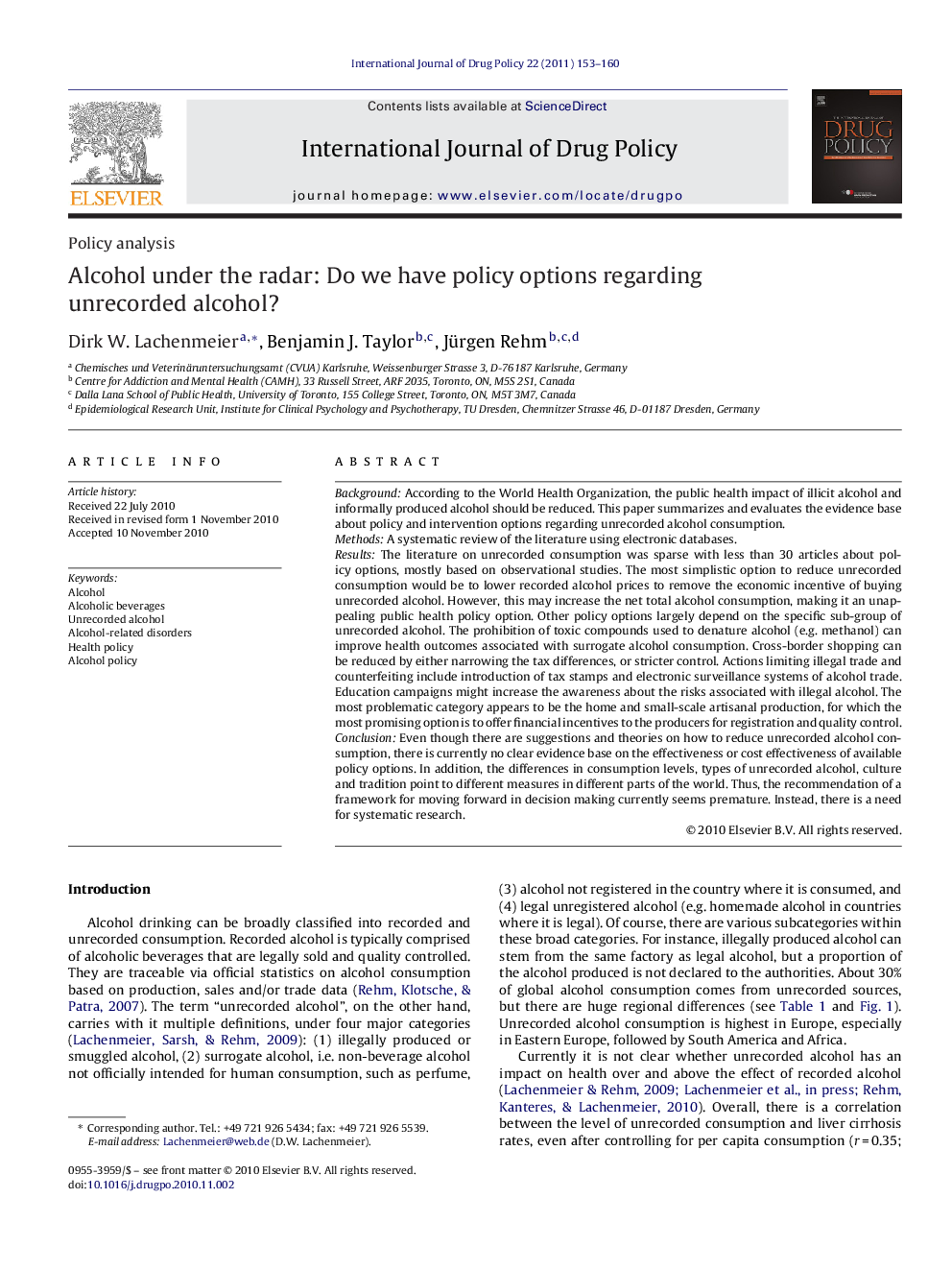| Article ID | Journal | Published Year | Pages | File Type |
|---|---|---|---|---|
| 1075651 | International Journal of Drug Policy | 2011 | 8 Pages |
BackgroundAccording to the World Health Organization, the public health impact of illicit alcohol and informally produced alcohol should be reduced. This paper summarizes and evaluates the evidence base about policy and intervention options regarding unrecorded alcohol consumption.MethodsA systematic review of the literature using electronic databases.ResultsThe literature on unrecorded consumption was sparse with less than 30 articles about policy options, mostly based on observational studies. The most simplistic option to reduce unrecorded consumption would be to lower recorded alcohol prices to remove the economic incentive of buying unrecorded alcohol. However, this may increase the net total alcohol consumption, making it an unappealing public health policy option. Other policy options largely depend on the specific sub-group of unrecorded alcohol. The prohibition of toxic compounds used to denature alcohol (e.g. methanol) can improve health outcomes associated with surrogate alcohol consumption. Cross-border shopping can be reduced by either narrowing the tax differences, or stricter control. Actions limiting illegal trade and counterfeiting include introduction of tax stamps and electronic surveillance systems of alcohol trade. Education campaigns might increase the awareness about the risks associated with illegal alcohol. The most problematic category appears to be the home and small-scale artisanal production, for which the most promising option is to offer financial incentives to the producers for registration and quality control.ConclusionEven though there are suggestions and theories on how to reduce unrecorded alcohol consumption, there is currently no clear evidence base on the effectiveness or cost effectiveness of available policy options. In addition, the differences in consumption levels, types of unrecorded alcohol, culture and tradition point to different measures in different parts of the world. Thus, the recommendation of a framework for moving forward in decision making currently seems premature. Instead, there is a need for systematic research.
